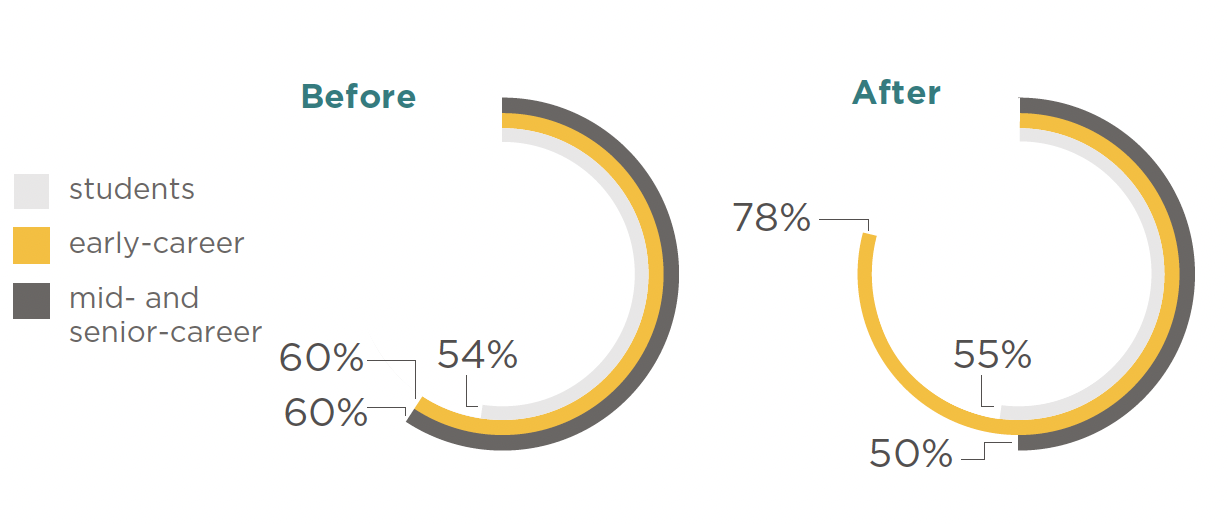
A multi-year study led by the office of Australia’s Women in STEM Ambassador investigated the impact of anonymisation (removing identifying names and other information) on applications for access to research facilities in Australia. The results provide crucial insights that have the potential to reshape the landscape of equity and diversity in the research sector.
Breaking the Barriers for Early-Career Researchers
The study revealed a substantial discovery: anonymising applications for scientific equipment significantly benefitted early-career researchers, offering them an increased chance of success, irrespective of gender.
Australia’s Women in STEM Ambassador, Professor Lisa Harvey-Smith, says, "This study goes beyond the usual assumptions about anonymisation in competitive grants and highlights the real struggles of early-career researchers in academia."
Key Findings: A Closer Look
- Before anonymisation, no gender gaps in application outcomes were observed.
- The introduction of anonymisation maintained the existing gender equity landscape.
- Anonymisation enhanced success rates for early-career researchers, fostering diversity in the research pool.
- The study suggests a positive impact of anonymisation on the broader retention and advancement of researchers facing barriers in STEM research.
Improved Early-Career Researcher Outcomes
Anonymisation statistically significantly boosted the success rates for applications led by early-career researchers at ACNS, irrespective of the applicant’s gender.
Dr Isabelle Kingsley, lead researcher on the study, highlights, "Our focus was on finding out how organisations could create an equitable research environment. Anonymisation proved to be a powerful tool."
Trailblazing the Anonymisation Journey
The trial was conducted across four cross-disciplinary research organisations managing national scientific facilities, including:
- Anglo-Australian Telescope (AAT)
- The Australian Nuclear Science and Technology Organisation’s (ANSTO) Australian Centre for Neutron Scattering (ACNS
- Australia Telescope National Facility (ATNF) which is owned and operated by CSIRO, Australia’s national science agency
- National Computational Merit Allocation Scheme (NCMAS)
Each organisation implemented anonymisation differently but results across organisations were fairly consistent.
Additional Quotes:
Associate Professor Lisa Williams, Chief Investigator on the grants that funded this work, remarks, "Anonymising applications removes access to information that can lead to psychological biases, offering a fairer assessment for all applicants."
Dr Isabelle Kingsley emphasises, "Securing access to research facilities is as pivotal as winning grants. Anonymisation levels the playing field, making it less about prestige and more about merit."
Driving Positive Change in STEM
The study's impact extends beyond application outcomes, potentially creating a positive ripple effect in the STEM career pipeline. Removing personal information from applications can be a catalyst for removing systemic barriers to career advancement.
In conclusion, Professor Harvey-Smith states, "Access to research facilities is just one piece of the puzzle in STEM inequity. Anonymisation addresses a crucial aspect, fostering a more inclusive and diverse research landscape."
About the Study: The research was conducted by the office of the Australian Government’s Women in STEM Ambassador at UNSW Sydney, focusing on four key research infrastructure collections in Australia. The research brief and preprint can be accessed here.
For media inquiries, contact: Becky Laurence, 0466 942 077
Key Facts:
· Before anonymisation, no gender gaps in application outcomes were observed.
· The introduction of anonymisation maintained the existing gender equity landscape.
· Anonymisation enhanced success rates for early-career researchers, fostering diversity in the research pool.
· The study suggests a positive impact of anonymisation on the broader retention and advancement of researchers facing barriers in STEM research.
About us:
The Women in STEM Ambassador is an Australian Government initiative to address gender inequities in science, technology, engineering and mathematics (STEM). Led by Professor Lisa Harvey-Smith and based at the University of New South Wales, the Office of the Women in STEM Ambassador influences and mobilises Australia’s business leaders, educators and policymakers to increase the participation of women and girls in STEM.
Contact details:
For media inquiries, contact: Becky Laurence, 0466 942 077



